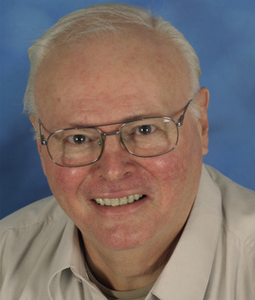Nominators must complete a nominee submission by June 30 with the following:
The IEEE Photonics Society Laser Instrumentation Award recognizes key contributors to the field for developments of laser-based and electro-optical instruments, which lead to the development of innovative systems enabling major new measurements or process capabilities of relevance to applications in industrial, biomedical avionic and metrology fields.
Presented to: An Individual or team, up to three in number
Scope: To recognize key contributors to the field for developments of laser-based and electro-optical instruments, which lead to the development of innovative systems enabling major new measurements or process capabilities of relevance to applications in industrial, biomedical avionic and metrology fields.
Prize: A Certificate and Honorarium
Basis for judging: The field(s) to be considered are classical and Self-Mixing Laser Interferometry, Optical Coherence Tomography, Digital Holography, Diffraction and Interference-based Measuring Devices like Particle Size Analyzers, Laser Interferometers, Optical Gyroscopes, and Laser Doppler Velocimeters, Measurements of distance and kinematic quantities, realized in either bulk-optics or integrated optics technologies. Measurements for the sole characterization of optical devices or fibers are not eligible.
We are proud to recognize and celebrate honorees of the IEEE Photonics Society Laser Instrumentation Award.

For the discovery of supercontinuum light source as an enabling technology for diverse applications and tunable Cr4 and Cr3 lasers.
Robert R. Alfano is a Distinguished professor at The City College of New York of City University of New York. He earned his Ph.D. from New York University in 1972. He has published over 700 articles, has over 49,545 citations, H index of 106, 133 patents, and raised $63M in photonics research funding over the years. He has mentored 59 Ph.D. students, some of which have become major figures in science and in particular, photonics. He is a fellow of APS, IEEE, OSA and NYAS. After graduating with a BS in1963 and Master’s degree in 1964, he started his career with GT&E (now Verizon) to work in semiconductor and ultrafast optical physics fields. His greatest achievement is the discovery of the Supercontinuum and discovery of several Cr4+ and Cr+3 tunable lasers.
Prof Alfano’s research has been primarily focused on Ultrafast and steady state spectroscopy and Optical properties of materials by direct measurements of optical phonon, vibrations, spin relaxation time, hot carrier effects, inter valley scattering in semiconductors and decay routes of vibrations in organic liquids. In addition, he investigated polaritons in GaAs and polariton role in precursor propagation in random walk antennae.
In Biology, his research involved measuring primary events vision and photosynthesis under light excitation. In Biomedical optics, he contributed to the development of methods to detect cancer using Raman and fluorescence spectroscopy and two photon microscopy and methods to improve optical imaging in scattering media (tissues, fog and clouds). He introduced the concept of Ballistic and Snake-like photons propagating random scattering media with carry information.
Most recently, he explained the mechanism for higher harmonic generation (HHG) and attosecond laser pulses using universal EM Optical Kerr effect using n2 for odd HHG and n1 for even HHG frequencies.
Prof Alfano’s research projects were funded by federal agencies such as NIH, NSF, NASA, ARO, AFOSR, ONR, and major companies like Corning, Hamamatsu, Lockheed Martin, General Electric, Northrop Grumman, Phillips, Clairol, Goodyear, Excel and IBM. Over the years, he directed several major research centers funded by NASA, Army Research Office, and New York State. He founded the CUNY research: Institute for Ultrafast Spectroscopy and Lasers (IUSL) in 1984 and has been its director to date.
Prof Alfano has received several awards – Coherent Award for Lifetime Achievement in Biophotonics (2002); Optical Society of America Charles Hard Townes Award (2008); SPIE Britton Chance Biomedical Optics Award (2012); APS Arthur L Schawlow Prize in Laser Science (2013); CCNY President’s Inaugural Award for Excellence (2013); OSA Michael S. Feld Biophotonics Award (2016); Inventor of Year award (2018); and SPIE Gold Medal (2019).
| Year | Award Winner | Citation |
|---|---|---|
| 2023 | Javier Garcia Monreal Zeev Zalevsky | For eminent impact to the field of laser based enhanced remote bio-sensing and its usage for photonic medical diagnosis. |
| 2022 | Franz X. Kärtner | For development and commercialization of femtosecond pulsed optical timing distribution systems for large-scale science facilities. |
| 2021 | Scott Diddams Andrew ‘AJ Metcalf Conner Fredrick | For development, deployment, and operation of an electro-optic laser frequency comb that enables the most precise near-infrared astronomical Doppler spectroscopy. |
| 2020 | Juergen Czarske | For pioneering and sustained contributions to laser Doppler velocimetry, distance and kinematic instruments, and digital holographic sensing. |
© Copyright 2024 IEEE — All rights reserved. A not-for-profit organization, IEEE is the world’s largest technical professional organization dedicated to advancing technology for the benefit of humanity.